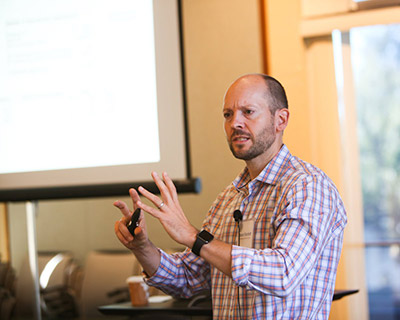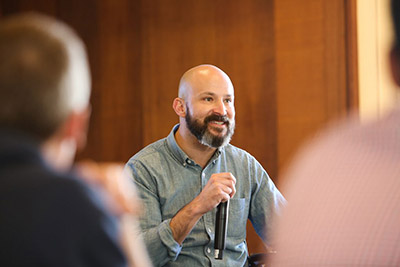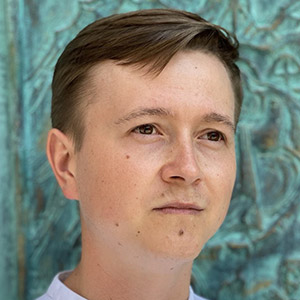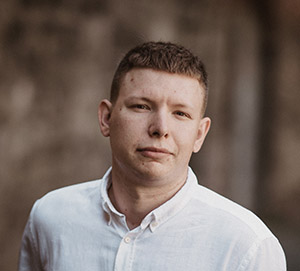By Andrew Cohen
Thanks to a new international partnership, 100 practicing lawyers from Ukraine are taking Berkeley Law’s Corporate Finance Fundamentals course for free.
Part of the school’s Executive Education program, the course is an online certificate program and knowledge platform for practicing lawyers and other non-financial professionals that normally costs $1,000. Delivered through various online lectures and interviews, it conveys how to apply financial information analysis and corporate valuation in different business settings and throughout legal practice.

The course’s current session, which opened June 6, consists of approximately 20 hours of content. There’s a 10-week recommended schedule, but participants can proceed at their own pace and have up to one year to complete the requirements and earn the certificate. With Russia’s invasion of Ukraine creating major economic instability, participants welcomed the opportunity.
“Ukraine needs — and will increasingly need after its victory in the unprovoked war against Russia — to attract foreign capital and foreign investments,” says Vitalii Mainarovych, a mergers and acquisitions lawyer who advises private equity funds, venture capital funds, and other clients on high-profile cross-border M&A deals in Ukraine and beyond.
“The underlying partnership contributes to the overall enhancement of understanding by Ukrainian professionals of how corporate finance works. Such corporate finance will provide Ukraine access to various capital markets, resulting in the increased flow of capital and foreign investments into Ukraine. This will ultimately assist the soonest recovery of our economy.”
Seeing the need
Closely following the war and the impact on Ukraine’s legal and business landscape, Berkeley Law Professor Robert Bartlett conferred with Stanford Law Professor Robert Daines.

“I learned from Rob that some Ukrainian lawyers had asked about online options as a way to add to human capital and stay productive while their country and careers were suffering due to Russia’s invasion,” says Bartlett, who helps teach Corporate Finance Fundamentals. “That made me think that we could use our Finance Academy as a potential resource for them, so I put Rob in touch with Adam Sterling. And Adam, as always, dramatically improved on the idea.”
Berkeley Law’s assistant dean for executive education and revenue generation and executive director of the school’s Berkeley Center for Law and Business, Sterling then connected with Oleksandr Akymenko at Ukrainian Global University (UGU) and Ukrainian lawyer Anna Babych.

He also worked with Artem Shaipov, a lawyer and development professional with close ties to the Ukrainian Bar Association. Shaipov co-founded the country’s Professional Government Association, leading a community of over 3,000 western-educated Ukrainians committed to making the nation’s civil service world-class.
“As a public university, access to education is a key priority for us,” Sterling says. “The work of these 100 Ukrainian attorneys has been disrupted by the war. This is a small gesture, but one we’re grateful to be able to make.”
Rebuilding project
A legal education reform advocate, Shaipov helped to organize a constitutional and administrative law conference in July 2021 at Yaroslav Mudryi National Law University, Ukraine’s leading law school, at which Berkeley Law Dean Erwin Chemerinsky delivered the keynote.

From the start of Russia’s invasion in February, Shaipov reached out to global universities asking them to support Ukraine by funding opportunities for education and research. Working with other volunteers engaged in similar efforts, they developed networks and eventually set up UGU in partnership with Ukraine’s Office of the President.
UGU brings together world-class educational and research institutions and Ukraine’s top students and scholars to create opportunities for high-quality education and research to rebuild the country. Nearly 65 universities from 20 countries have joined the initiative, which provides scholarships, fellowships, and postdoc programs worldwide.
“We believe that displaced individuals from all countries under attack deserve support from the international community and hope that UGU becomes a model of effective educational support that can be expanded to other countries in acute need,” Shaipov says. “International partnerships between law schools are crucial for providing quality legal education in today’s globalized world that values transnational professional networks, cross-cultural competencies, and international opportunities that such partnerships yield.”
As for Berkeley Law’s contribution, he calls it “a fantastic learning opportunity for Ukrainian lawyers and law students craving a better understanding of corporate finance.”
Practical and powerful
Oleksandr Lysenko, an independent corporate governance consultant and member of the International Working Group on Russian Sanctions, provides consulting services to private companies as well as state-owned enterprises (SOEs) and governments to increase their management efficiency. He says taking the Corporate Finance Fundamentals course has been enormously helpful.

“Ukraine is fighting for its right to independence and paying an incredibly high price to achieve this. However, Ukraine’s fight is also for the civilized world,” says Lysenko, who co-authored the Ukrainian Corporate Governance Code and helped in corporate governance reform at the largest Ukrainian SOEs, including a strategic manufacturer of weapons and military hardware.
“In this regard, worldwide consolidation and international partnerships are absolutely crucial to winning this fight,” he adds. “Moreover, this will be extremely important to recover Ukraine after we win the war as it needs a lot of international investments. In this respect, such cooperation should also give much-needed impetus for developing Ukraine’s capital market.”
Mainarovych credits the course for offering a foundational understanding of how businesses report their performance, how they’re evaluated, how they can raise growth capital, and how to finance the acquisition of a targeted company.
“Notably though, the course does so in a very user-friendly way, which enhances the digestion of the underlying information and materials,” he says. “All of these aspects are an undeniable part of my daily job, and their better understanding helps me improve my commercial acumen and deliver tailored and commercial advice to my clients, which ultimately results in enhanced deal-making.”
Praising how the course provides practical tools needed in reading financial statements and evaluating companies’ worth, Lysenko also applauds its “well-designed segment” for using Excel that enables users to markedly improve their analytical skills in less than two hours.
“I also hope this course will give Ukrainian students access to the Berkeley alumni community,” he says. “It would be extremely useful to have an opportunity to benefit from the experience and advice of the best lawyers to implement leading practices in Ukraine.”